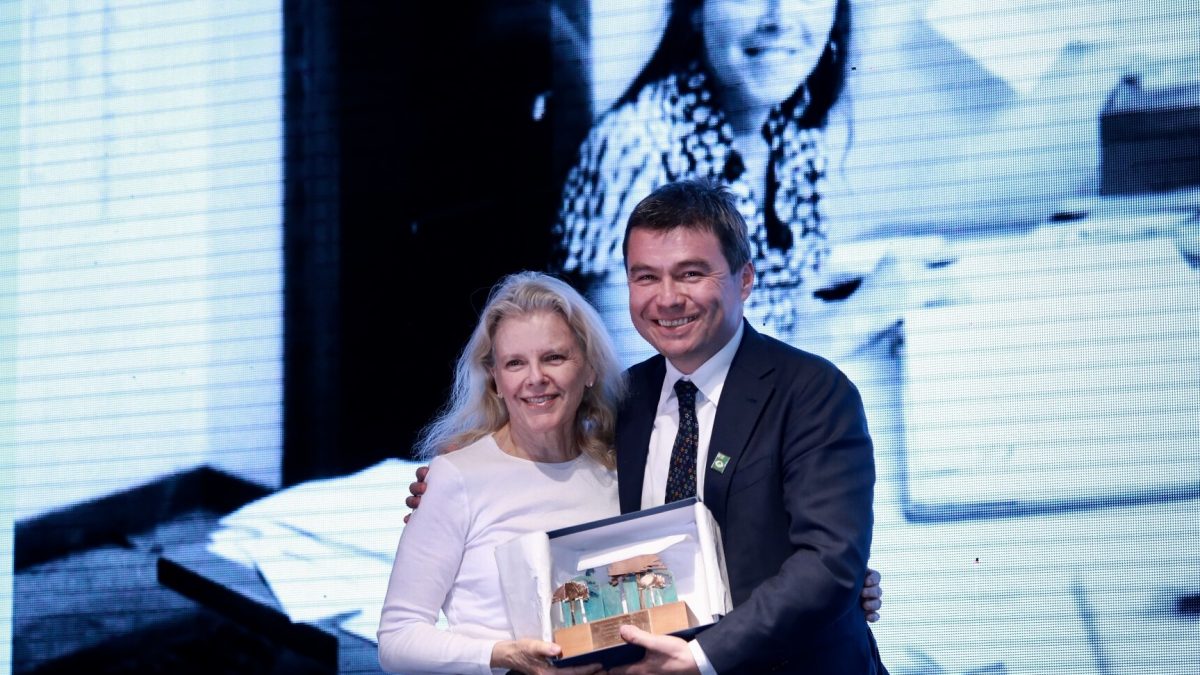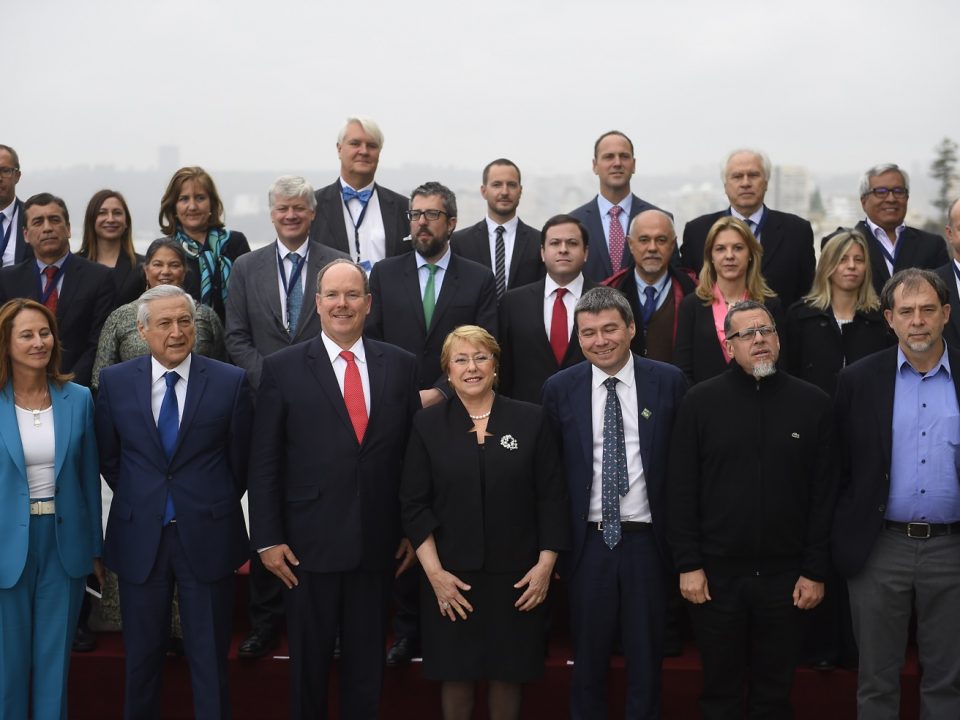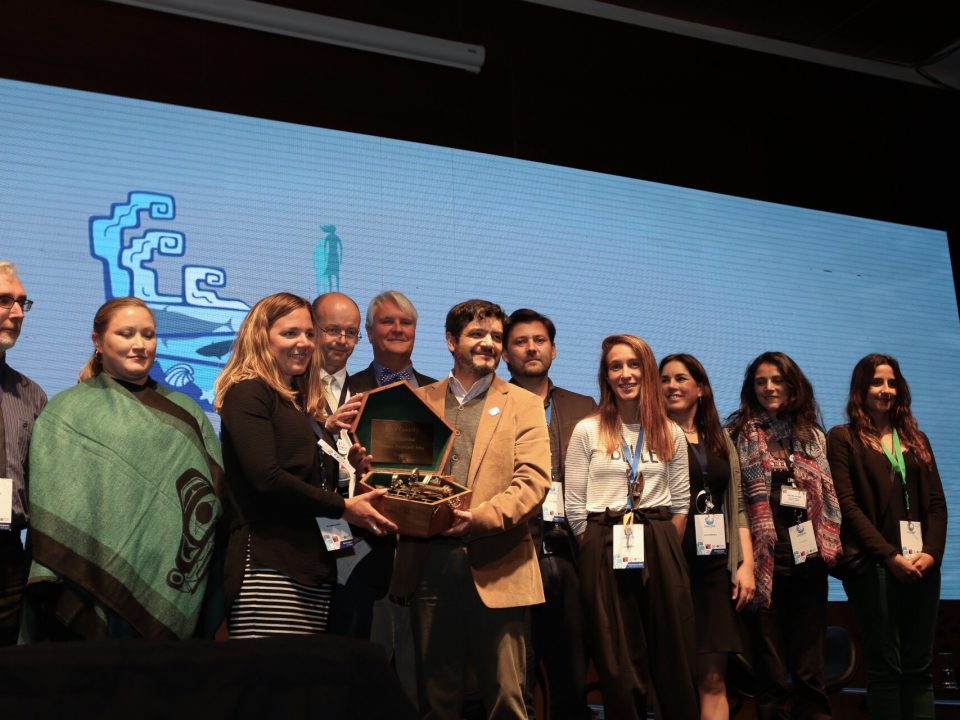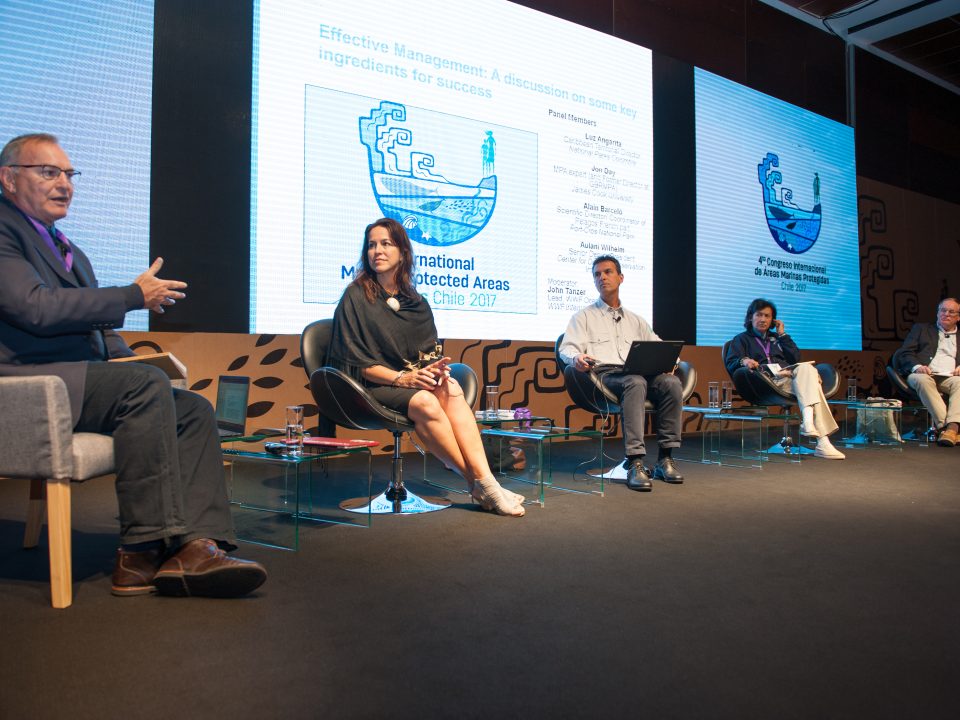- In a massive event gathering over 1000 people, the Coquimbo Region in Chile officially inaugurated the International Marine Protected Areas Congress IMPAC4, with a ceremony led by the Chilean Minister of Environment Marcelo Mena, the Foreign Affair Minister of Chile Heraldo Muñoz, and the Regional Mayor Claudio Ibáñez.
- The Plenary Salon at Enjoy Hotel in Coquimbo gathered a vast array of experts, community members, conservationists, agents, and authorities from over 80 countries worldwide who, from tomorrow onwards, will bring to life high-level scientific discussions around the topic of ocean conservation.
With a packed auditorium and a wide presence of representatives from over 80 countries worldwide, including the United States, Australia and France, as well as small islands like The Seychelles and The Maldives, the 4th International Marine Protected Areas Congress IMPAC4 begun at the Enjoy Hotel in Coquimbo, Chile.
The welcoming words to the IMPAC4 on behalf of the Chilean Government came from the Environment Minister and Chairman of the event, Marcelo Mena, who stated that the world’s main problem has been to ignore our ocean so far, when in reality “it is a source of resources that we need to recognize and value”. He indicated that today there are 3 billion people that depend on its marine and coastal biological diversity for their subsistence, and that our oceans provide employment for more than 200 hundred million people, representing 5% of global GDP.
Mena emphasized that infinite growth does not exist unless we start decoupling economic growth from the use of finite resources. “We need to work together, NGOs, governments, communities and private companies to look after what is most sacred: our oceans’ life, which is the future for humanity”, he stated.
Marine Species
“A marine protected area can increase by five the quantity and diversity of marine species in its surroundings. That’s why they represent a key opportunity to recover species that today are over exploited”, the Environment Minister Marcelo Mena added.
In the meanwhile, the Foreign Affair Minister of Chile, Heraldo Muñoz expressed satisfaction that Chile is the host country for this year’s International Congress, highlighting the motivation that IMPAC4’s slogan generates: ‘Bringing together people and oceans’. He stated that as long as people feel the ocean as part of their lives, they will contribute to its care and will demand protection from their authorities.
He also referred to the creation of three new protected marine areas in Chile, one in the Juan Fernandez Archipelago with 480.000km2; another one in Cabo de Hornos, Diego Ramirez Island with 147.000kms2 and finally one in Rapa Nui with 700.000km2. “With this –he pointed- the percentage of protected areas in our country could triple, reaching an area over 44% with 1.5 million km2”.
“It is important to have an adequate infrastructure and the means to support the creation of these areas, besides measurements of control, verification and regulation in our oceans.” Finally, Minister Muñoz indicated that by the end of 2017, Chile will have its first Oceanic Policy National Plan, a significant landmark for this country.
The Regional Mayor of Coquimbo, Claudio Ibáñez, highlighted the importance that economic activities that affect our oceans are carried on in a sustainable way, for the benefit of future generations. “You will face intense work days ahead, where important future commitments will be assumed by the organizations and stakeholders involved in each panel. We need all of your efforts to achieve the sustainable development goals”, he pointed.
Tribute to Douglas Tompkins
The event was also attended by Kristin McDivitt Tompkins, wife of the late conservationist Douglas Tompkins, who received a posthumous tribute for his support to the protection of the environment. Tompkins noted that 14% of terrestrial ecosystems are under some sort of protection, which is insufficient, but also important to protect our Earth.
“The oceans are far from that. Whatever we do, the policies and programs that come out of this conference will have consequences. My hope and vocation is that us as Tompkins Conservation will join forces with you who are focused on the earth’s and ocean’s wellbeing. We commit to be part of public and private efforts to protect our oceans.
Afterwards, speakers from International WWF, IUCN-WCPA, FAO Regional Office for Latin America and the Caribbean, and Pew Charitable Trust shared ideas with the seminar attendees. WAITTS Foundation important collaboration to this Congress was also highlighted.
Likewise, Angélica Méndez, community leader from the Caribbean Fisheries Network described her experience with marine protection efforts.
The ceremony was closed with the presentation of renowned Rapa Nui pianist and ocean activist, Mahani Teave.
During these four days of scientific discussion, four main topics will be deeply discussed: the relationship between Marine Protected Areas (MPA) and global change; the importance of the close bond between coastal communities and ocean conservation; success case analysis; and a common vision for the future of MPA.
For more information please visit the web site: www.impac4.org
Follow us on social media:
Twitter: @impac4_Chile / #IMPAC4
FB: IMPAC 4 Chile
Instagram: impac4chile2017
Press contacts for IMPAC 4:
Eliana Chong
comunicacionesimpac4@neuronagroup.cl
++569 8502 2462
Héctor Mondaca
prensaimpac4@neuronagroup.cl
++569 8479 7407




